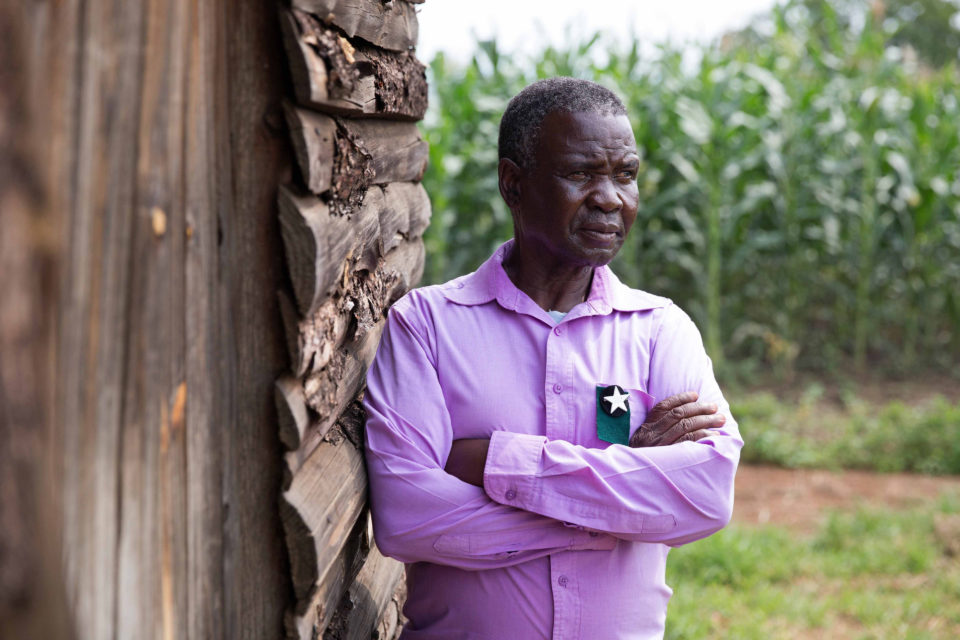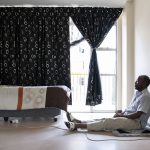No justice for leaders exiled by King Mswati III
Mtfuso II and the late Mliba Fakudze were forced to flee with their families in 2000, when the king illegally stripped them of their status. They are still awaiting justice.
Author:
12 April 2019

Nkenke Samuel Dlamini, 71, changed his name to Sikhulu Mtfuso II in 1982 after rising to become the leader of kaMkhweli village in eSwatini. He once lived a comfortable life, owning 15 cows, 26 goats and a 25-hectare sugar cane plantation for which he employed about 95 workers.
His life was seriously shaken when someone who claimed to be a representative of King Mswati III summoned him to attend an urgent meeting on a Saturday morning in 1996. The meeting was scheduled to take place at Macetjeni, a village about 25km away, under the late Sikhulu Mliba Fakudze who was also called to attend the meeting.
Neither of the tikhulu had any inkling that the agenda of the meeting was to strip them of their leadership and make them enemies of the regime. In the meeting, they were informed that the older brother of King Mswati III, Prince Maguga, would take over leadership of the Macetjeni and kaMkhweli villages.
Mtfuso II said that after carefully scrutinising the content of the meeting’s agenda, they decided to go back to Maguga’s house in Macetjeni the following day to inform him that: “We humbly request you to take us to iNgwenyama (the King) to ask for ourselves if he is the one who approved this order, forcing us to surrender our chieftaincy?”
The request fell on deaf ears.
Leaders flee eviction
The matter was not discussed again until four years later when, on 12 July 2000, King Mswati III issued a removal order through the Ministry of Home Affairs to forcibly evict them and the constituency that supported them.
The regime deployed paramilitary police and soldiers to destroy their property and evict them with maximum force. “I got a tip-off from a local boy advising me to disappear for a while after he had heard some rumour that the king’s associates were planning to attack and evict us,” Mtfuso II says.
He took the rumour seriously and fled the village that afternoon. “I left all my livestock and family around 5pm. The only thing that I managed to escape with was my blazer jacket,” he says.
Fakudze heard the rumour that same day and told his wife, Elda Fakudze, that he was scared for his life and would not come back home. He, too, left that afternoon.
With both men having fled their homes, their wives and children were the only ones left to evict when a number of police officers and soldiers arrived at around 9pm.

Wives left as witnesses
Anna Mtsetfwa, 51, Mtfuso II’s wife, still has raw and vivid memories of the eviction.
“There were a lot of van vehicles that dropped them [soldiers and police officers] and they were carrying torches.”
She said the first group of soldiers to arrive screamed at her from outside the house, urging her to take whatever she could and evacuate the house quickly. “Hey, we are soldiers. If your husband is still here, please tell him to run away for his life quickly. We are helping you simply because we do not know what you’ve done. The other soldiers who are coming behind us will just follow and execute orders.”
Mtsetfwa said that if those soldiers had not told her to flee immediately, “all of us would have died … People would not have known what happened to us. When I think about this, I feel like crying. My children would cry when they saw the police because of this tormenting experience.”
Related article:
Mtsetfwa fled her home on a dark and extremely cold day, with a three-month-old unhealed wound from a Caesarean section. The family stayed with different households for two days and eventually lived in a forest for at least three days without food while trying to find a way to cross the border into South Africa.
Fakudze’s wife, Elda, said that after her husband had left, “one bulldozer driver arrived around 4pm and [the driver] said: ‘Today big cars and bulldozers have been dispatched to come and destroy all your houses.’ He said he would rather be fired than destroy our houses.”
During the nighttime eviction, Fakudze’s brother arrived to drive Elda and the children to safety at a Roman Catholic missionary church in Manzini. She says they stayed in different places and finally “moved again to Ludzeludze, where plans for us to leave the country were made. Those who hid and accommodated us were scared that the authorities would find out and kill them.”
The Fakudzes arrived in Amsterdam, just over the border, in Mpumalanga, before Mftuso II’s family managed to escape. The following week, Mtfuso II and his family made it to South Africa, where they lived with the Fakudze family. They planned to stay in Amsterdam temporarily, with the hope that the eviction order would be retracted. It never was.
No respect for court ruling
Barnabas Sibusiso Dlamini, the prime minister of eSwatini who died on 28 September last year, was regarded as the king’s “darling”. At the time of the evictions, Dlamini was serving his first term as prime minister, meaning that he was in charge of the police and soldiers.
In 2001, a high court in capital city Mbabane ruled that both of the leaders be allowed to move back to their villages with immediate effect. The judges found that there was neither legitimate nor pressing issues that warranted the eviction of Fakudze, Mtfuso II and their families and supporters.
They returned home after the ruling, but the police and soldiers attacked again. “It was very bad. Those who’ve witnessed this incident are still traumatised, even to date,” said Mtfuso II. After this attack, they left eSwatini for good.
Dlamini ridiculed the high court’s ruling publicly, saying the police would not abide by the ruling as they and the soldiers were fulfilling a mandate that emanated from iNgwenyama. This caused a constitutional crisis, leading to a number of judges resigning in protest against the lack of respect shown to them and the muzzling of the judiciary.
‘Immune’ from prosecution
Dlamini’s unpublished autobiography tells the story of his life and his journey as the longest-serving prime minister of eSwatini.
In the excerpt, published by The Nation magazine, Dlamini wrote: “The power to make laws in Eswatini vests both in the King and Parliament, and the courts are to interpret and implement the laws as they find them. At the same time, it is important that judgments do not ignore the role played by His Majesty in the administration of Liswati Law and Custom in Liswati areas. The Macetjeni judgment unfortunately did ignore the Monarch’s right to intervene to diffuse a potentially violent situation.”
Dlamini continued, “In fact, in earlier cases within the previous two years that involved chieftaincy disputes, the courts had declined to take the cases, holding the view that these were the exclusive jurisdiction of the iNgwenyama (the King). This reasoning was not, for some reason, also extended to the Macetjeni and KaMkhweli cases. My 28 November 2002 statement protected the Monarchy’s decisions from being challenged in our courts. The problem was that the foreign judges of our Court of Appeal (now the Supreme Court) were viewing His Majesty as if he was a president of the country who could be taken to court.”
Related article:
Dlamini said that, according to the Liswati Law and Custom, which was recognised in the new Constitution adopted in 2005, King Mswati III should be “immune” from legal process and prosecution.
He added that the police officers who refused to allow the leaders back into their villages should be granted the same immunity “as duly authorised by the iNgwenyama”.
No justice
No one has yet been held responsible for their evictions 19 years ago, for their loss of their dignity and emotional and psychological torment. While in exile and waiting for their leadership to be restored, the police and soldiers allegedly demolished what the leaders once called home, including their livestock.
“All of it is gone. We do not even know where our things went,” said Elda Fakudze.
Human rights lawyer Thulani Maseko was arrested in 2014 and sentenced to two years imprisonment for co-authoring an article with The Nation editor Bheki Makhubu that criticised the judicial system’s impartiality and lack of independence.
“KaMkhweli and Macetjeni remain as one of the black spots for Swaziland because we never had thought that His Majesty, who is also the custodian of culture, tradition and custom, would have the audacity to remove chiefs who were appointed by his own father,” said Maseko.
“We would have thought that the current king would have respected that all processes were followed upon the appointment of Mtfuso II and Mliba as chiefs. If there was any reason to remove them as chiefs, proper process ought to have been followed. But that was not done.
“Now the question is, what do you do when the very same custodian of culture, tradition and custom is seen to be undermining and violating the [values he claims] to abide to?”


